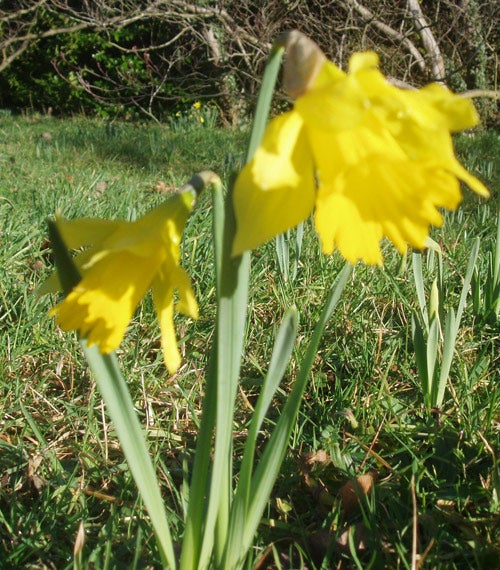Britain in bloom (as spring is sprung earlier than ever)

Your support helps us to tell the story
From reproductive rights to climate change to Big Tech, The Independent is on the ground when the story is developing. Whether it's investigating the financials of Elon Musk's pro-Trump PAC or producing our latest documentary, 'The A Word', which shines a light on the American women fighting for reproductive rights, we know how important it is to parse out the facts from the messaging.
At such a critical moment in US history, we need reporters on the ground. Your donation allows us to keep sending journalists to speak to both sides of the story.
The Independent is trusted by Americans across the entire political spectrum. And unlike many other quality news outlets, we choose not to lock Americans out of our reporting and analysis with paywalls. We believe quality journalism should be available to everyone, paid for by those who can afford it.
Your support makes all the difference.Gardening enthusiasts could be forgiven for forgetting what month it is when they step outside in the morning, as carpets of snowdrops, crocuses and daffodils – all traditional spring flowers – are in bloom across the country.
It has been a record-breaking spell for flowers, with many spring varieties opening their petals a full two weeks before the average time for the decade. The unseasonably warm and wet winter so far in Britain has coaxed plants into early flowering.
At Kew Gardens, where they have been measuring plant blooming times since the 1950s, horticulturalists have been staggered by how early some varieties have arrived this month.
The first daffodils opened at Kew on 16 January, a week earlier than 2007, and 11 days earlier than the average for this decade for that type of the flower. Crocuses also set a record at the gardens, flowering on 24 January, 11 days ahead of the decade average.
Sandra Bell, a horticulturalist at Kew who specialises in the effects of climate change on plants, said she was "really astonished" by how early the spring bulbs had flowered. "There's something odd going on this year. Even ash trees which normally flower in April are out. It's very peculiar."
Since the 1980s, plant blooming times have come forward at a steady pace, but according to Ms Bell, such a leap forward from year to year is "completely unprecedented".
"During the first five years of the 1980s [daffodils] would have opened on or around 12 February, but by the 2000s the average date they were opening was 27 January. In these 25 years the average date that they open has come forward 16 days, which is just amazing," Ms Bell said.
"But to move forward 11 [days] in one year is enough to knock you out. You don't expect the natural world to respond that quickly. This early spring period would have been what we called the middle of winter 10 years ago."
The outdoor gardens at the Eden Project in Cornwall have also reported unusually early flowerings of spring bulbs. Adrian Lovatt, a senior horticulturalist, said he had been amazed by the warmth of the winter, and had been expecting the early blooms. "It's the effect of the mild winter we've been having", he said. "We've had some varieties of daffodils coming almost a month earlier than usual. Many of our crocuses have also been in flower, and are roughly two weeks early".
At the Rococo Gardens in Painswick, Gloucestershire, the snowdrops are out a good two weeks early. Gardeners in the grounds of Painswick House say the flowers are not usually spotted until around Valentine's Day, but thousands could be seen in full bloom yesterday.
The gardens' director Paul Moir said: "The snowdrop responds to minute changes in light and ground temperature but this year it has suddenly become much warmer."
Rape fields dotted with blooming yellow flowers – a sight more normally associated with mid-summer – were even visible in Winchester, Hampshire.
And the recent mild weather has not only been affecting flowers. The UK Phenology Network has been receiving reports of unusually early frogspawn and tadpoles – a typical sign of the coming of spring.
Join our commenting forum
Join thought-provoking conversations, follow other Independent readers and see their replies
Comments